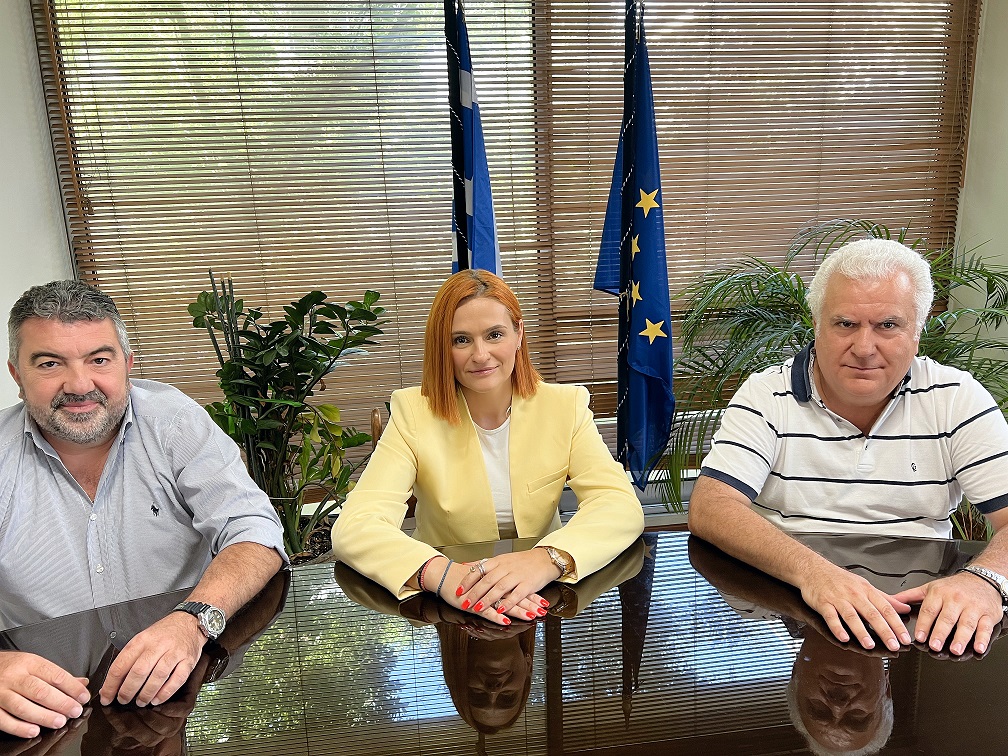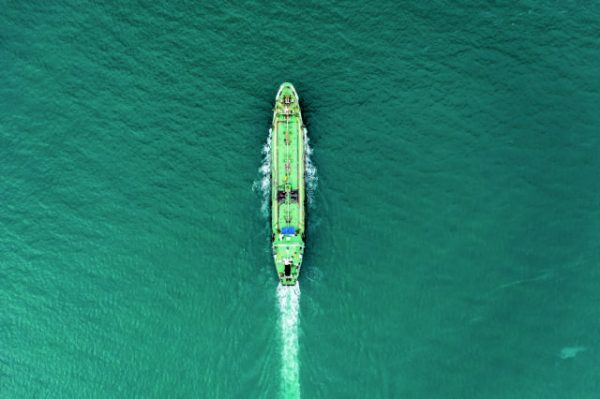
The problems caused by the rise of inflation and the energy crisis in the Greek craft industry were put at the center of the meeting of the president of the Athens Chamber of Small and Medium Sized Industries (ACSMI) Pavlos Ravanis (BEA) with the Co-Chair of the Environmental Greens (member of the European Green Party) Mrs. Katerina Andrikopoulou Sakorafa.
The agenda was dominated by economic and tax policy issues, as well as a number of other topical issues, which have shaped an ominous landscape for the modern Greek craft/production business. The agenda could not miss issues related to green entrepreneurship, but also sustainable development “which for the ACSMI is high on the agenda, as long as the actions for them are conducted after a well-thought-out plan, with rules adapted to the data and the profile of the Greek small and medium-sized business”, as characteristically stated by Mr. Ravanis.
VAT reduction, liquidity support
The imposed reduction of VAT on basic necessities, fairer taxation for small and medium-sized and very small businesses, support for production and processing, the reduction of the Fuel Excise Tax combined with a reduction of VAT to 13% even with a three-month horizon, the reduction of non-salary costs for small and medium-sized enterprises (SMEs), the support of liquidity with financial tools for their medium-term lending, the proper utilization of the Recovery and Stability Fund, the support of start-up entrepreneurship in collaboration with the European Investment Bank, but also the strong connection of the tourism sector with the national craft production, are some of the points on which both sides agreed.
Soaring energy costs
Referring to the problems faced by SMEs, they also jointly recognized the particular importance of the effective management of energy costs, but also the complete abolition of the abusive adjustment clause, which “increased the electricity bill of, indicatively, a bakery from 1,100 to 3,300 euros” as characteristically stated by the Chamber’s First Vice-President, Mr. Damigos.
Mrs. Andrikopoulou Sakorafa, in her turn, stated that Greek handicraft businesses and small and medium-sized enterprises are the backbone of the Greek economy and their support is a top priority. “The ACSMI has submitted a number of proposals in this direction, many of which, in fact, not only coincide with our positions, but we have pointed out in our turn, many times,” she said
Education
Special mention was also made of the significant role of education, which should integrate knowledge that promotes both business and environmental literacy at all levels, creating the conditions for a sustainable and livable present and future. Furthermore, a special basis must be given to the correct information, briefing and guidance of SMEs, regarding the European programs they can participate in, as well as any other tool available that can contribute to their sustainability. In this matter, from the ACSMI. service’s point of view, it was emphasized that: “the criteria of the financial programs and tools adopted by the E.U. are very important and shoud be adapted and specialized based on the profile of the Greek business (small, medium, etc.)” .
Ms. Andrikopoulou Sakorafa also referred to the deficiencies that exist in such programs, such as for example that of the subsidy of fixed expenses, which ended on June 30, not giving the possibility to small and medium enterprises of the second category to repay their credit balance in tax expenses , given that they submit VAT quarterly and the start of submission of Q2 VAT is July 1st.
Special mention was also made of export activity, which is currently monopolized by large companies, as both the tax framework for SMEs, as well as the lack of incentives and training, but also the consequences of the ten-year economic crisis, the pandemic and now inflation, leave little room for growth in this area, leaving very capable “hands” and excellent ” brilliant minds” unexploited by Greek craft production.
Latest News

German Ambassador to Greece Talks Ukraine, Rise of Far Right & Tariffs at Delphi Economic Forum X
Commenting on the political developments in his country, the German Ambassador stressed that it was clear the rapid formation of a new government was imperative, as the expectations across Europe showed.

Athens to Return Confiscated License Plates Ahead of Easter Holiday
Cases involving court orders will also be excluded from this measure.

Servicers: How More Properties Could Enter the Greek Market
Buying or renting a home is out of reach for many in Greece. Servicers propose faster processes and incentives to boost property supply and ease the housing crisis.

Greek Easter 2025: Price Hikes on Lamb, Eggs & Sweets
According to the Greek Consumers’ Institute, hosting an Easter dinner for eight now costs approximately €361.95 — an increase of €11 compared to 2024.

FM Gerapetritis Calls for Unified EU Response to Global Crises at EU Council
"Europe is navigating through unprecedented crises — wars, humanitarian disasters, climate emergencies," he stated.

Holy Week Store Hours in Greece
Retail stores across Greece are now operating on extended holiday hours for Holy Week, following their Sunday opening on April 13. The move aims to accommodate consumers ahead of Easter, but merchants remain cautious amid sluggish market activity.

Green Getaway Ideas for Easter 2025 in Greece
Celebrate Easter 2025 in Greece the sustainable way with eco-farms, car-free islands, and family-friendly getaways rooted in nature and tradition.

Civil Protection Minister Details Summer Firefighting Plans at Delphi Forum
At the 10th Delphi Economic Forum, Minister of Climate Crisis and Civil Protection Yiannis Kefalogiannis discussed Greece's plans for the upcoming fire season.

How Shops and Markets Will Operate During Easter Holy Week
The Easter holiday schedule has been in effect since April 10, with retail stores open Palm Sunday, and most supermarkets also operating to meet consumer demand for Easter shopping

Why Is the French Aircraft Carrier Charles De Gaulle in Piraeus?
Docking in Piraeus after a four-month deployment in the Indo-Pacific region, the admiral of the aircraft carrier the Charles de Gaulle says, "Greece is our best partner in the Mediterranean."








































 Αριθμός Πιστοποίησης
Αριθμός Πιστοποίησης